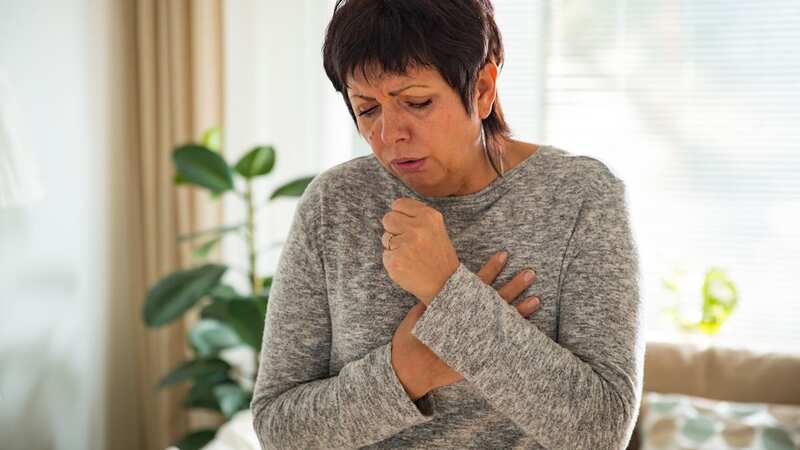Overlooked sign of whooping cough in eyes as fresh outbreak sweeps the UK

Whooping cough is on the rise across the UK again, with 553 confirmed in England in January, compared with 858 cases for the whole of last year (2023).
The increase in whooping cough cases across England is occurring after a prolonged period of low case numbers due to restrictions and reduced social mixing patterns during the Covid pandemic, the government has warned in a new announcement.
Whooping cough, according to the NHS, is a "highly contagious bacterial infection of the lungs and airways", and can cause bouts of coughing for "two to three months or more". It's highly contagious because it is "spread in the droplets of coughs or sneezes of someone with the infection".
The first symptoms of whooping cough are very similar to a cold, including a runny nose, a sore throat, and a raised temperature - and it's not until about a week later that the "intense coughing" begins.
The coughing tends to be in "bouts", and they tend to happen during the night time. Also, "coughing usually brings up thick mucus and may be followed by vomiting" due to the force of the coughing. But did you know that there's a little-known symptom that you should look out for in your eye that could make it obvious you've got the illness?
 Teachers, civil servants and train drivers walk out in biggest strike in decade
Teachers, civil servants and train drivers walk out in biggest strike in decade
The NHS warns that: "The strain of coughing can cause the face to become very red, and there may be some slight bleeding under the skin or in the eyes."
The reason that the cough is called "whooping cough" is because between coughing, you may "gasp for breath" and it may cause a "whooping sound", but not everybody will experience this part of the illness.
"Young children can sometimes briefly turn blue (cyanosis) if they have trouble breathing", the NHS shared, but they reassured that this often "looks worse than it is", and they should start breathing again quickly. In young babies, the cough may not be "particularly noticeable", but there may be "brief periods where they stop breathing."
Eventually, the bouts of coughing will become "less severe and frequent", but it may be a few months until the cough goes away completely. To try and ease symptoms, get plenty of rest, drink lots of fluids, and take painkillers such as paracetamol or ibuprofen for a fever.
In response to increasing case numbers, the UKHSA is reminding mums-to-be to get protected against whooping cough so that their young baby has protection from birth against this serious disease and to ask their midwife if they are unsure. UKHSA is also urging parents to check that their children are vaccinated against whooping cough, which is offered to all infants at 8, 12 and 16 weeks of age (as part of the 6-in-1 combination vaccine) with an additional dose included in the pre-school booster vaccine.
If you, or someone you know, have significant breathing difficulties, such as long periods of breathlessness or choking, shallow breathing, periods where breathing stops, or dusky, blue skin, or you develop signs of serious complications of whooping cough, such as fits (seizures) or pneumonia, call 999 or visit A&E.
Speak to your GP or phone 111 if you have symptoms of whooping cough, you've had a cough for more than three weeks, or your cough is getting worse.
Read more similar news:
Comments:
comments powered by Disqus

































